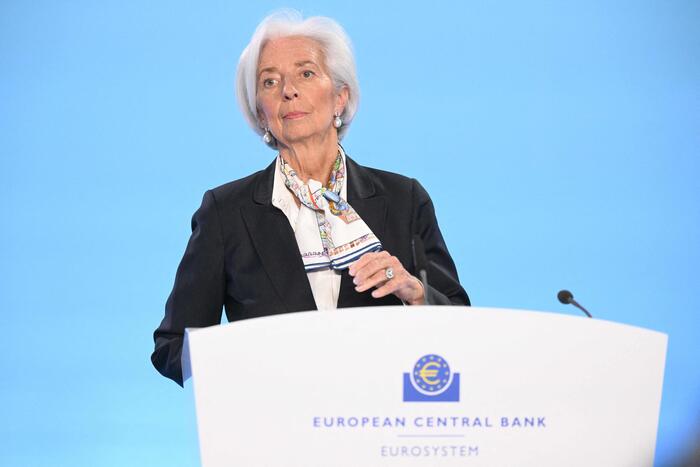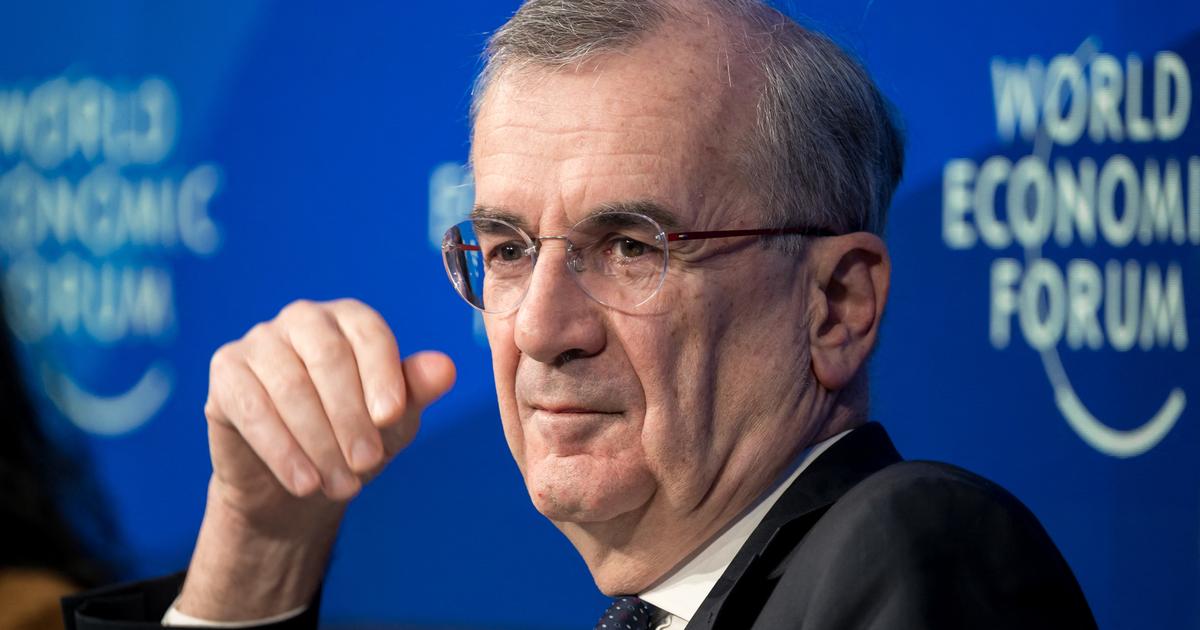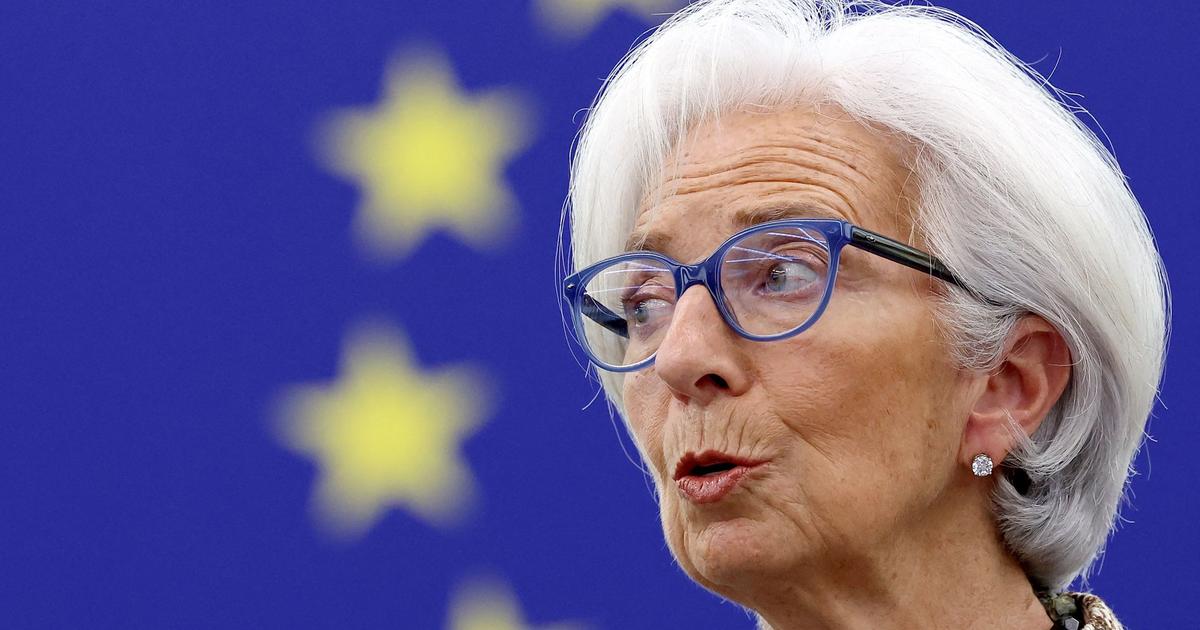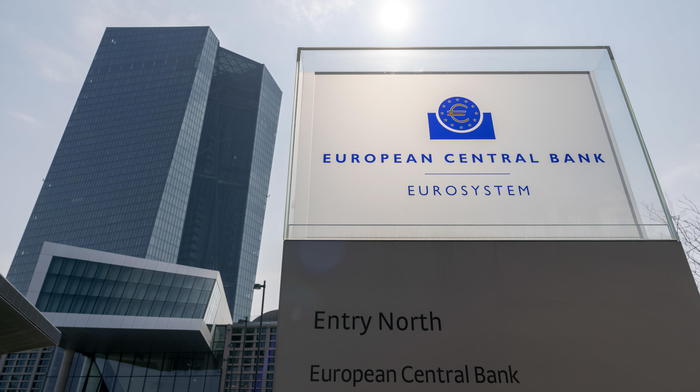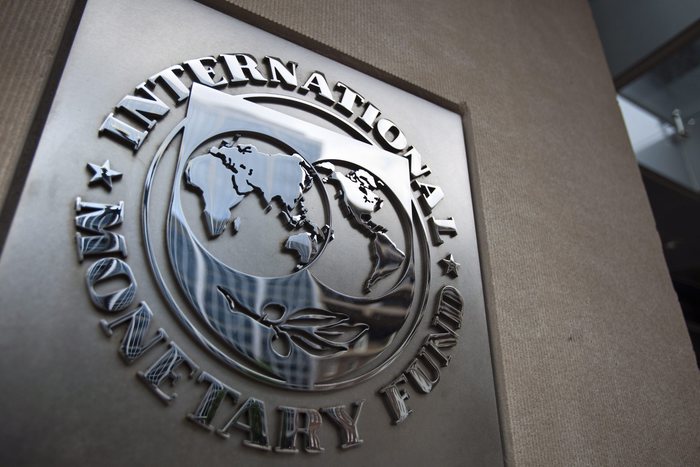Enlarge image
Christine Lagarde: The ECB President has hardly spoken recently
Photo:
ANDREW CABALLERO-REYNOLDS / AFP
It was pretty quiet over the summer.
After the last meeting of the Governing Council of the European Central Bank (ECB) on July 21, President Christine Lagarde hardly spoke publicly, and if she did, it was mostly on questions of gender equality, diversity, culture or climate protection.
All important issues, no question, but perhaps not the most urgent that the ECB is currently dealing with.
Other ECB executives have also held back in recent weeks.
Speeches and interviews were few and far between.
Councilor Isabel Schnabel traveled to the annual Federal Reserve Meeting in Jackson Hole, Wyoming, where she gave a thoughtful speech and concluded that "to regain confidence" central banks must "quickly bring inflation back to their target" of 2 percent.
Otherwise their credibility in the eyes of the population threatens to be permanently damaged.
You could say so.
According to the European Treaties, the ECB has a single primary task: to ensure price stability.
The central bank itself once set a target of two percent;
it has now become the international central banker norm.
In August, however, euro-zone consumer prices rose 9.1 percent year-on-year.
The ECB has never been further from the goal it set itself.
And it's no longer just soaring energy and food prices that are driving inflation;
a central bank has hardly any influence on them anyway.
The »core rate« (excluding energy and food) is now also rising at a rate of 4.3 percent, which is half a percentage point more than at the last ECB council meeting.
The inflation in our brains
Citizens are gradually losing confidence in the ECB's ability or willingness to steer: for the coming years, they expect inflation rates to be well above the two percent mark on average.
Expectations of inflation are
getting
out of hand and eating into the price and wage system.
We talked about this last week: Type 1 inflation, which emanates from an isolated price shock, is rapidly becoming type 2 inflation, which has become independent because citizens and companies include constantly rising prices in their calculations.
A momentum of its own that is difficult to break because the psychology is changing: as inflation settles in people's brains, it changes our economic system for the worse.
Now it's the ECB's turn.
The central bank council meets in Frankfurt on
Thursday .
There is a lot to talk about – and to explain.
Because despite record inflation, the key interest rate in the euro area is still zero.
It is possible that the ECB will now raise rates by three quarters of a percentage point.
On the one hand, that would be a clear signal.
On the other hand, it would still lag far behind the development.
A rapid succession of further rate hikes will have to follow.
And all of this is happening in an environment where war, insecurity and energy shortages are already pushing Europe into a deep recession.
How to regain trust - and how not
The rapid rate hikes that are now needed are more painful than they need to be.
The ECB could have recognized more than a year ago that it was time to gently slow down the economy.
Because inflation rates were already rising back then.
The possibility that price dynamics could pick up towards the end of the corona crisis had been discussed for some time.
When leading central bankers now act as if they were surprised by the inflationary force, that is somewhat adventurous.
It's true: no one foresaw Russia's attack on Ukraine and the resulting shortages in the energy and grain markets.
But inflation was there before that.
Vladimir Putin has further accelerated it.
Actually, it would be time for the central bankers to apologize.
After all, they have stood by and ignored inflation for far too long, dismissing it as "temporary."
Just a year ago, Isabel Schnabel criticized "alleged experts and the media" for stirring up "fears" among the citizens.
They would draw absurd comparisons to the Weimar Republic and the 1970s and paint "the specter of inflation" on the wall.
All of this does not do justice to the special situation after the pandemic has subsided.
Everything is fine.
Oh well…
If you read Ms. Schnabel's Jackson Hole speech last week, she is now drawing such comparisons herself.
She speaks of the danger of social unrest and the impending loss of confidence in democratic institutions.
Rightly so.
Those who warned early on about the possibility of an inflationary shock after the acute phase of the pandemic were right.
(In all modesty I include myself in this; we spoke about this for the first time in spring 2020 and then again and again; the corresponding figures, data and facts were accessible and by no means pulled out of thin air).
The central banks were wrong.
It can happen.
Nobody knows the future.
It is difficult to navigate through periods of great uncertainty.
No question.
This is precisely why an open, fact-based discourse is needed in which a large number of voices have their say, not least from science and journalism - this is precisely where the strength of democracy lies.
But it also needs consequences: if powerful institutions have made mistakes, they have to work them out and admit them publicly.
They must learn lessons to do better in the future and be better equipped to face an increasingly erratic geopolitical environment.
How else do the central bankers plan to regain confidence?
Time to say: sorry?
Not so far, at least not with the necessary clarity.
Driving on sight is not enough
ECB council member Philip Lane, who is regarded as the architect of the previous monetary policy course, said in a speech in Barcelona these days that the central bank is now pursuing a "meeting-by-meeting approach".
I translate it like this: Since Lane and colleagues have no reliable idea of how to proceed, they decide from council meeting to council meeting according to the current situation.
But: To state publicly that one has been surprised by unforeseeable developments and that there is nothing one can do about it - apart from driving on sight - is extremely weak.
Incidentally, other central banks were similarly wrong, and they find it just as difficult to admit mistakes and take appropriate action.
Jerome Powell, the head of the US Federal Reserve, tried to sound pithy in Jackson Hole last week.
He tried to pump up his damaged credibility by citing some of his great predecessors - Alan Greenspan, Ben Bernanke and Paul Volcker, who ended the inflation of the 1970s at the cost of a severe recession.
Powell didn't sound particularly convincing.
In any case, a new analytical framework did not become apparent.
What conclusions should central banks draw?
A few basic considerations to finish.
"Radical Uncertainty"
The fact that all major central banks are struggling in the current phase suggests that we are dealing with deep-seated problems.
The central banks need new early warning systems.
They have relied too much on statistical models that can explain the past but fail at times when the underlying economic structures are changing.
This is exactly what we have experienced over the past two and a half years: the pandemic has triggered far-reaching structural changes.
The Ukraine war now shows how rapidly the geopolitical environment is shifting.
Former Bank of England boss Mervyn King has for years warned his former colleagues against over-reliance on mathematical models and neglecting other methods in times of "radical uncertainty".
In particular, he emphasizes that analyzing common narratives can provide additional insights.
Our Dortmund "Inflation Perception Indicator" (IPI) is intended to provide starting points for this.
A look at the history of classic central bank instruments would also be helpful.
M3 is always there
In the first few years after the founding of monetary union, the analysis of the money supply still played a major role.
It was part of the ECB's monetary policy strategy, which rested on two pillars.
One pillar contained indicators intended to depict economic and price developments.
The other dealt with the development of the money supply M3, a measure that includes funds that can be mobilized quickly and that can generate demand in the short run.
This is logical insofar as a central bank cannot influence prices directly, but it can influence the money supply: by changing the refinancing conditions and setting requirements for lending, it can make new business easier or more difficult for the banks – and thus the demand for goods and services affect what in turn, at some point,
In the days of the Deutsche Mark, the Bundesbank pursued a strategy of controlling the money supply.
The ECB took over parts of it in its first phase.
In the early days of the euro era, the analysis of the "monetary pillar" was part of the standard repertoire of every monetary policy rationale.
But at some point it was considered hopelessly outdated.
In the speeches of the central bankers and in Ms. Lagarde's press conferences, the topic hardly ever comes up.
This is not only a consequence of intellectual fads, but also of changing economic structures.
Globalization has led to a decoupling of the inflation rate and money supply growth (
see chart
).
Because competitive pressure was high, prices and wages hardly reacted.
In the 2000s, M3 rose rapidly, but prices remained broadly stable.
Only the rapid expansion of the money supply in 2007/08 led to an interim rise in inflation, which was quickly ended by the Lehman crash and the major recession that followed.
In the second half of the 2010s, when the money supply increased again more quickly, inflation rates even fell at times.
The decoupling of money and prices took so long that at some point monetary factors seemed completely irrelevant.
They no longer play a prominent role in the strategy of the ECB and other central banks.
A rapidly growing money supply is driving asset valuations higher.
Accordingly, there is a relatively close connection with real estate prices (
see chart
) – the excess liquidity has to go somewhere.
From this point of view, the central banks bear some of the responsibility for the emergence of capital market bubbles, which, however, are not included in the inflation rates.
But that's only marginally.
Back to the Future?
Now it looks like a new phase is beginning.
The connection between the money supply and inflation seems to be getting closer again.
Because the available range of goods is becoming scarcer in the course of de-globalization - increasing demand can therefore more easily lead to overshooting prices.
This is exactly what seems to be the case at the moment: the increase in inflation since the summer of 2021 is obviously also a consequence of the massive expansion of the money supply beforehand, when the ECB pumped trillions of euros into corona support measures into the system, mainly by buying up member state bonds.
advertisement
Henrik Mueller
Short-cut politics: How permanent outrage destroys our democracy
Publisher: Piper
Number of pages: 256
Publisher: Piper
Number of pages: 256
Buy for €22.00
price query time
09/04/2022 6:39 p.m
No guarantee
Order from Amazon
Order from Thalia
Order from Weltbild
Product reviews are purely editorial and independent.
Via the so-called affiliate links above, we usually receive a commission from the retailer when you make a purchase.
More information here
The mistake was not so much in the lavishly measured aid at the beginning of the pandemic, but in the hesitation to quickly scale back the program after it had abated.
Of course, those who no longer believe that the money supply has any influence on the price of goods tend to consider it irrelevant.
Incidentally, M3 growth has recently declined because the ECB has largely halted its bond purchases.
The road back to the future is just beginning.
The most important economic dates of the coming week
Expand areaMonday
London –
After Boris (I)
– The British Conservatives announce who will succeed Boris Johnson as party leader – and thus also as Prime Minister.
Leipzig –
last stand?
– The largely marginalized left tried to bring itself back into the conversation with a »Monday demonstration« against the energy and social policy of the federal government.
ExpandareaTuesday
London -
After Boris (II)
- Freestyle after the election by the members of the Conservatives: The Queen appoints the new Prime Minister.
ExpandareaWednesday
London –
After Boris (III)
– The new prime minister is answering questions from MPs in Parliament for the first time.
Beijing –
(De-)Globalization
– China's customs presents new figures on the development of Chinese foreign trade.
Cupertino -
Apple News
- The IT group presents new products.
Expand areaThursday
Frankfurt –
what now?
– Governing Council meeting.
A rate hike of 0.5 or 0.75 is considered likely.
President Lagarde will then address the press.
London -
On Strike
- Staff at the national postal service Royal Mail are rehearsing the walkout (until Friday).
ExpandareaFriday
Brussels - (
No) pressure in the pipeline
- Special meeting of EU energy ministers.
Key question: How will Europe get through the winter without freezing, an economic crisis and trouble among the member states?
Beijing -
Inflation, seen from the Far East
- China's statistical office announces figures on the latest price developments.



/cloudfront-eu-central-1.images.arcpublishing.com/prisa/4EXOEQQAWNH53ICZAJC5SNVJAE.jpg)
